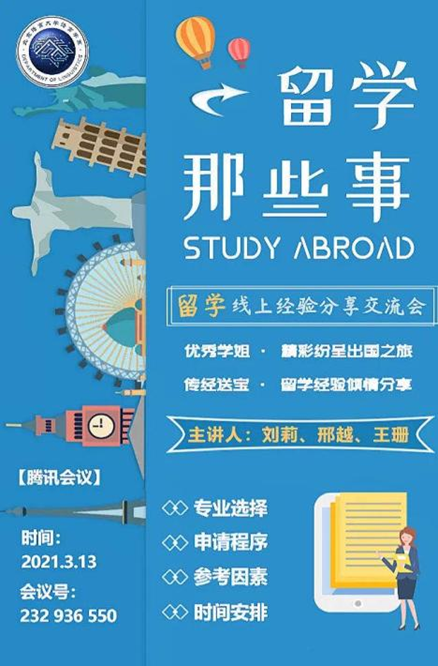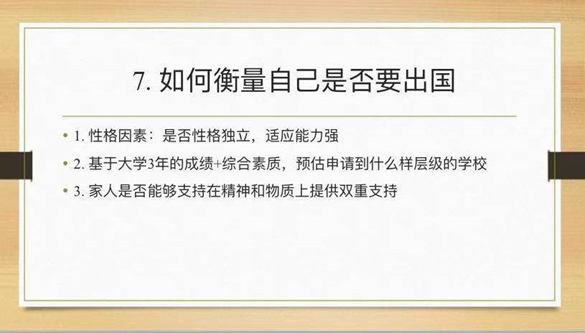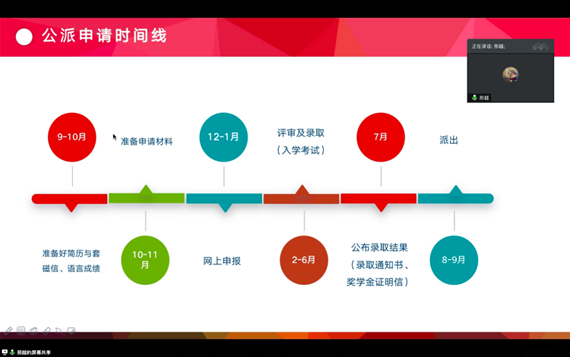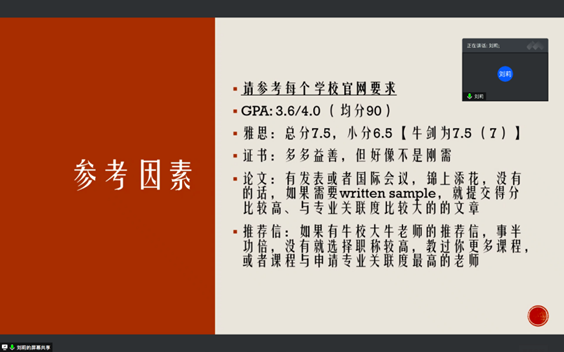Author: Undergraduate League Branch of the Department of Linguistics In order to solve the puzzle of students’ career planning in their study life, guide students to figure out their personal life path, and consciously set up a correct outlook on employment, the Department of Linguistics organized a series of career planning activities in the new semester. On March 13th, the first activity of the career planning series – lectures on study abroad were held via the Tencent Conference online platform. This event invited Master and Phd students from the Chinese University of Hong Kong, Eötvös Loránd University in Hungary and the University of Warwick in the UK. Based on their personal experience, they answered various questions that one may encounter in the process of preparing to study abroad. 
Poster of Lectures on Study Abroad First of all, Shan Wang, with her own experience in applying for a Master of Translation and Interpreting and Juris Doctor from the Chinese University of Hong Kong, introduced what major students who majoring in English linguistics can choose if they intend to study abroad, and what specific preparations should be made in advance. She further answered doubts about how to judge whether you want to go abroad. 
How to judge whether you want to go abroad Next, Yue Xing, an outstanding graduate of the Department of Linguistics, introduced her experience in applying to Eötvös Loránd University in Hungary, and talked about her determination of studying abroad during her master’s study. And she made an elaborate explanation on how to choose a suitable supervisor as well as a foreign country, and how to set up a clear research direction. 
Timeline of application for government-sponsored overseas study Finally, Li Liu, who received her master’s degree from University College London and is now studying for her doctor’s degree at the University of Warwick in the UK, took her own experience and those of her friends as an example to introduce the process of applying a university, the estimated cost of studying abroad, the reference factors for admission to graduate school, and whether one should consider studying abroad. 
Reference factors for admission to graduate school After the experience sharing, here came the Q&A session. The three speakers patiently answered the questions raised by the students. During the two-hour activity, the students benefited greatly from the vivid introductions of the three lecturers. The lecturers patiently explained how to make sure whether one need to study abroad, and introduced the application process in detail. The online sharing meeting of studying abroad was held in great success. |